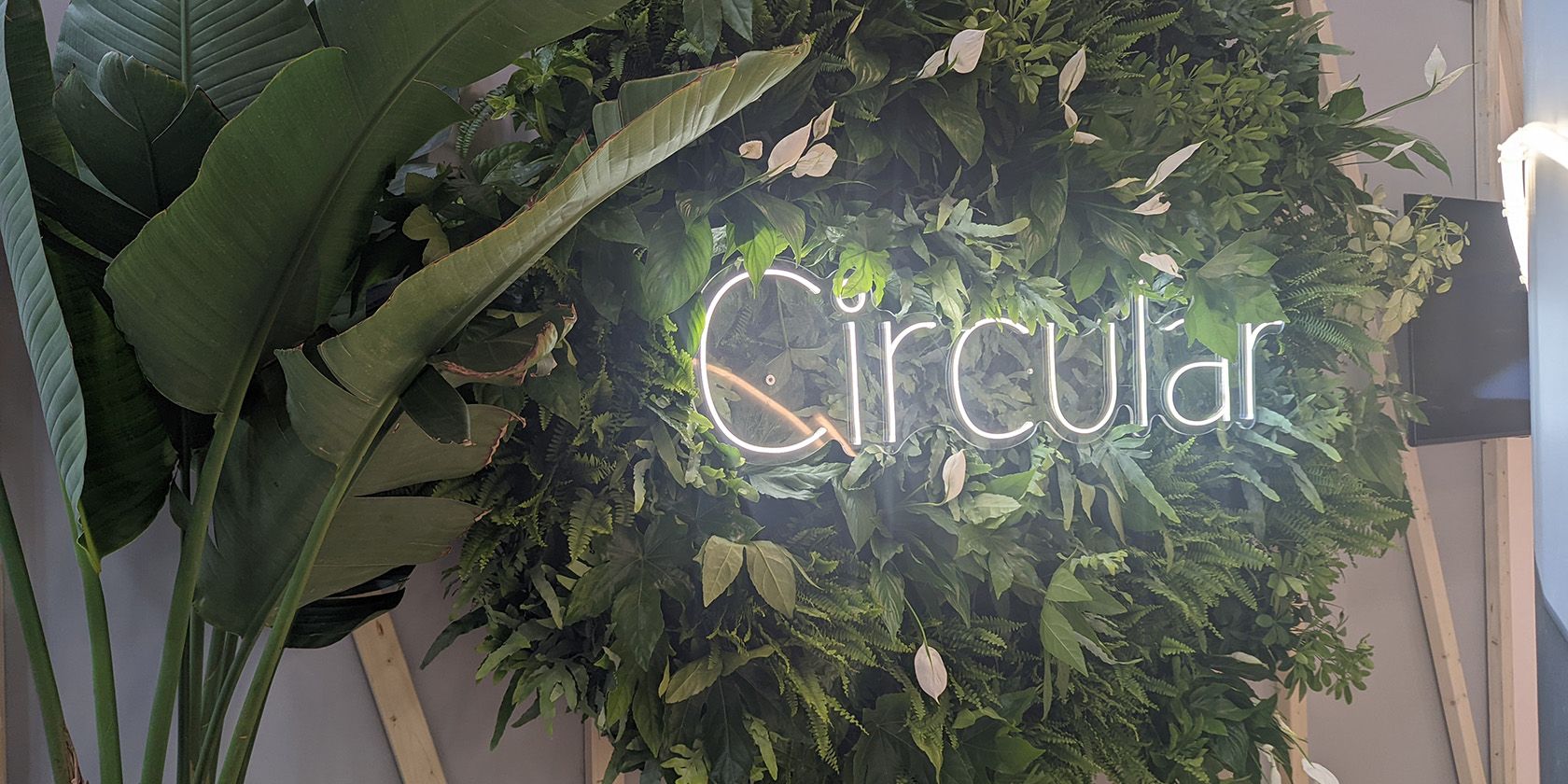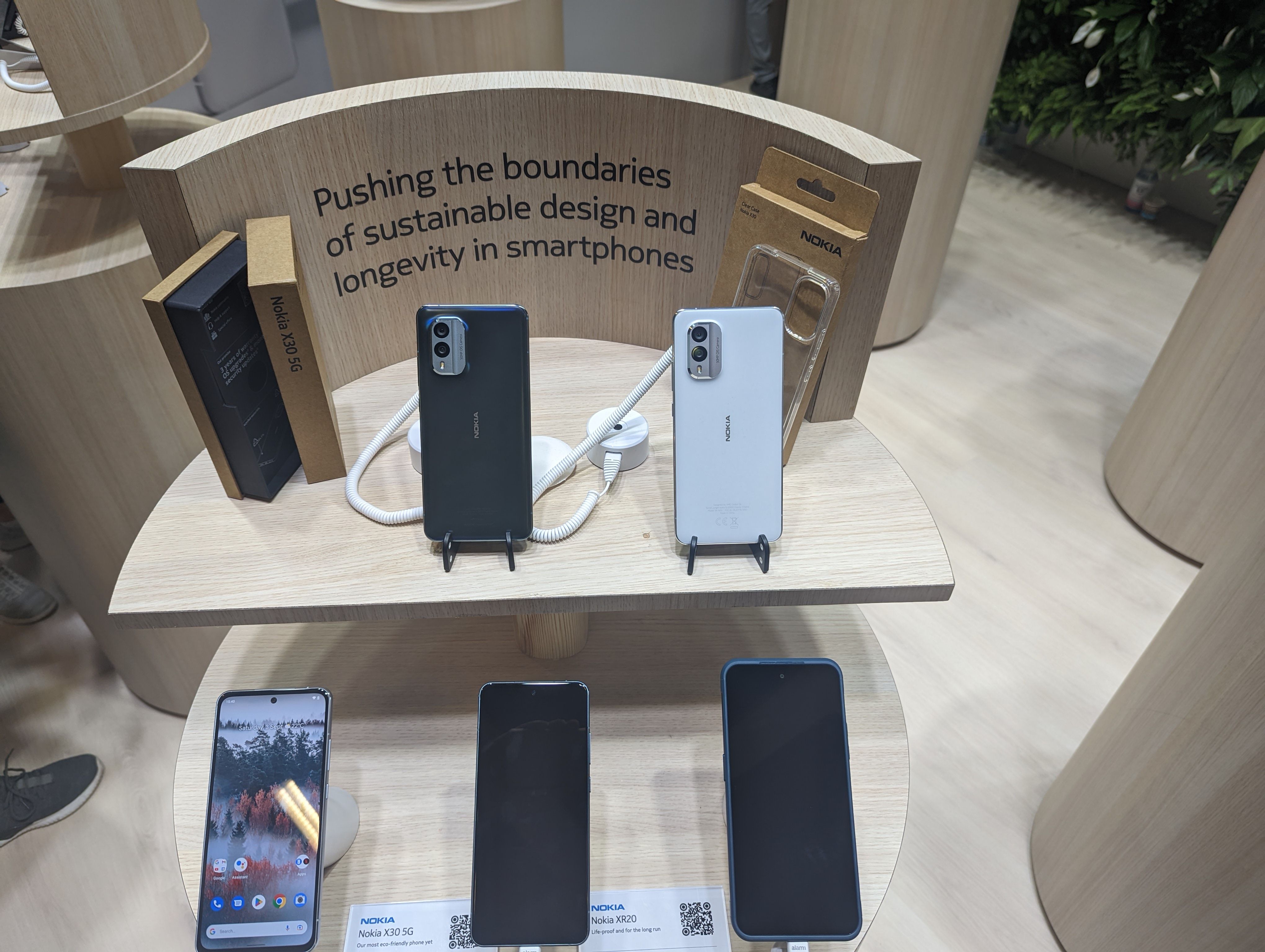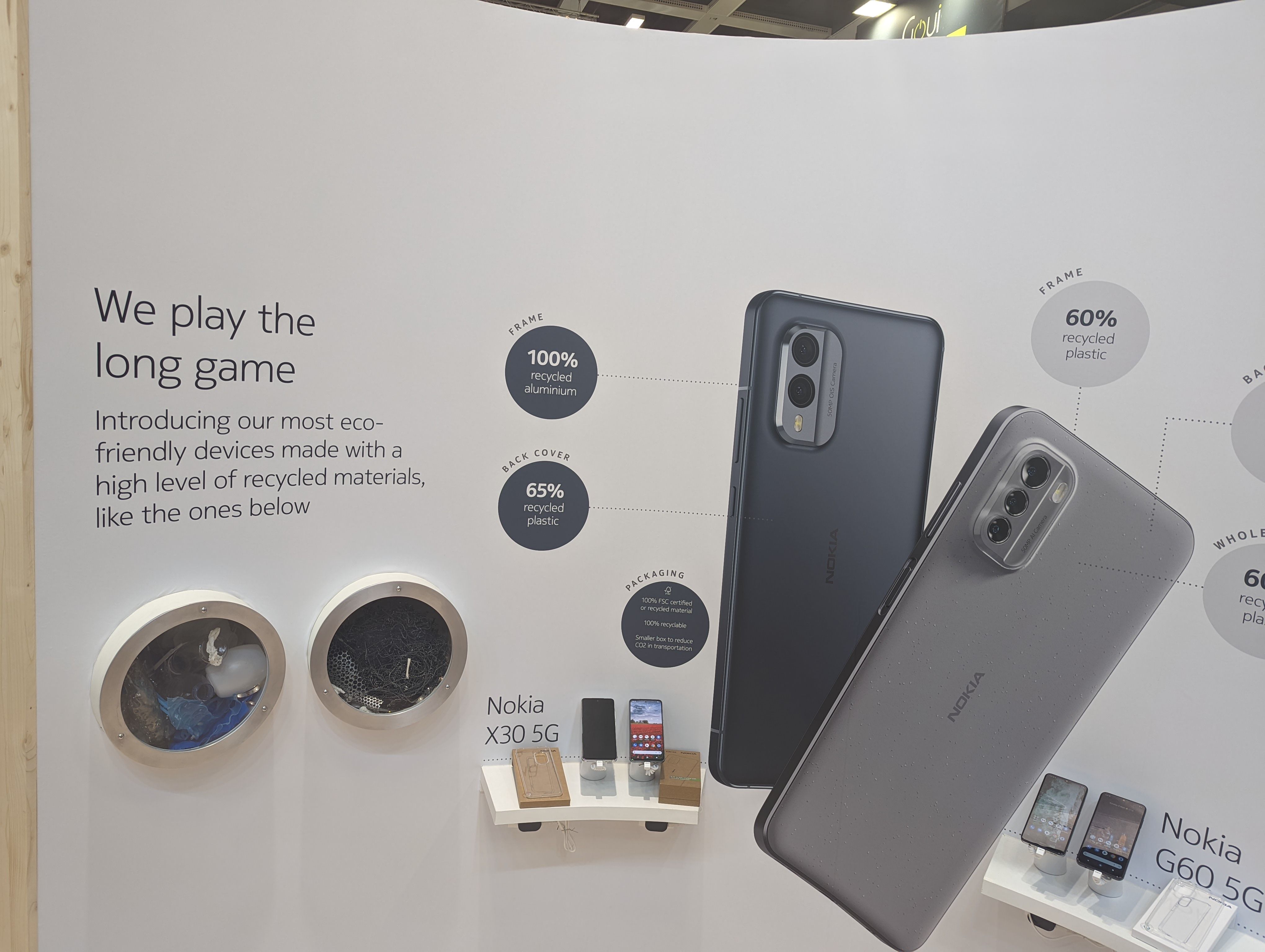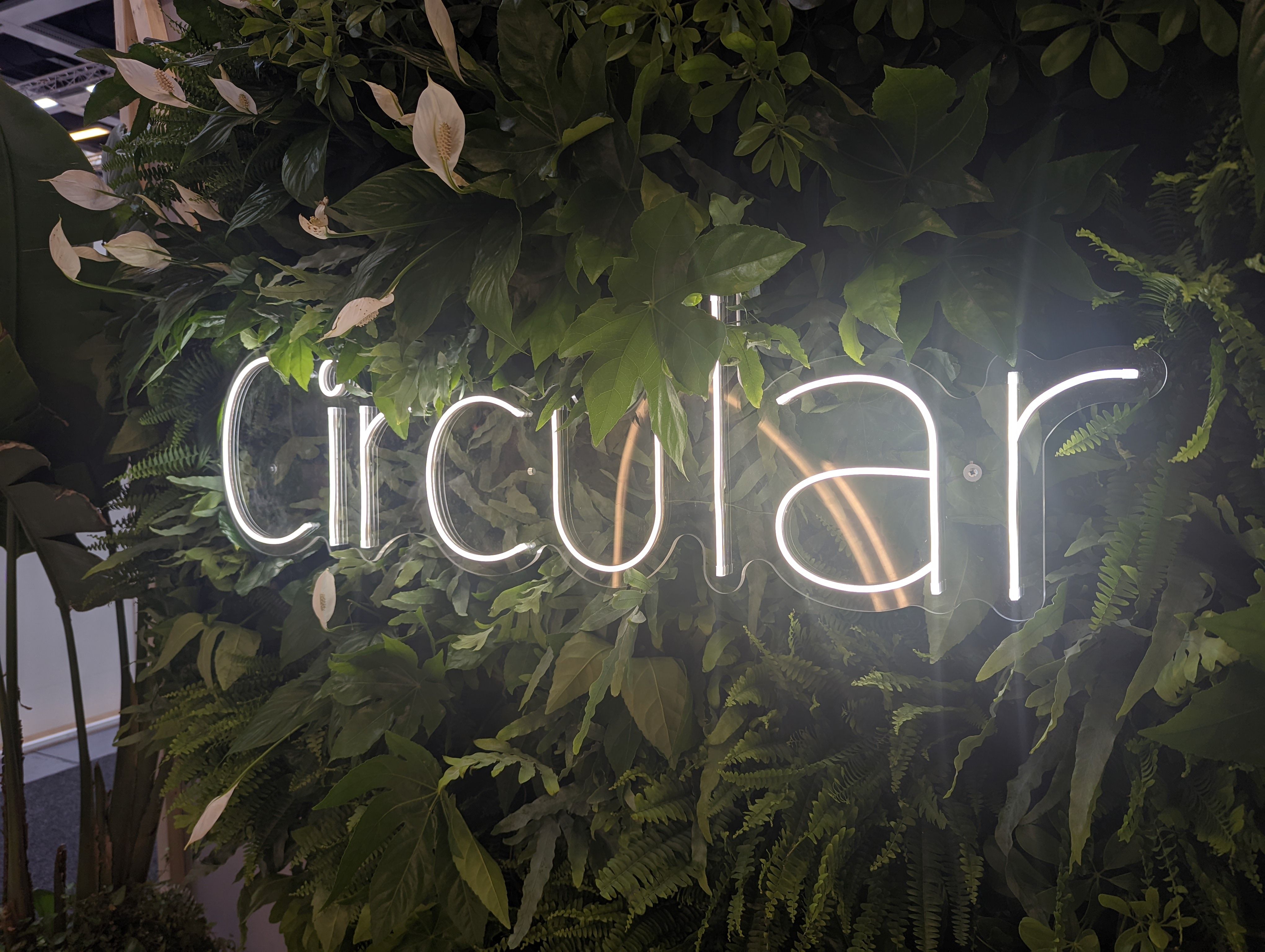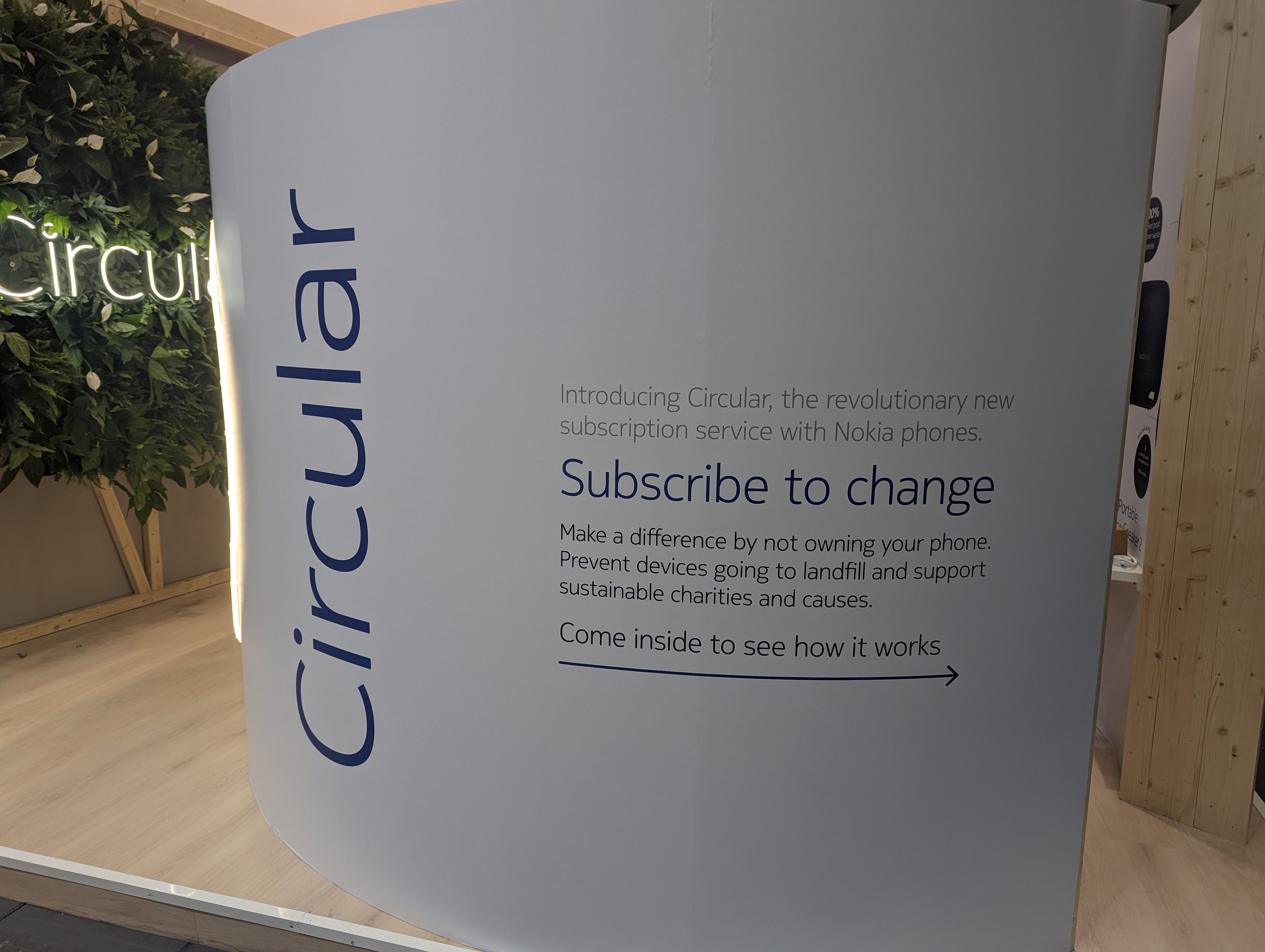Nokia's booth at IFA 2022 was based around the theme of sustainability through the construction and lifespan of their devices. There were two new phones and a tablet on offer, but the announcement of their Circular subscription service really caught our eye.
It's essentially a rental service. You lease your phone from Nokia rather than own it outright.
Programs like Circular are a good idea, but have Nokia made it worth your while, and what could other schemes like this do differently?
What Is Nokia Circular?
Circular is Nokia's subscription service designed to incentivize keeping handsets longer while avoiding adding to the ever-growing problem of e-waste. On the surface, it seems similar to existing device rental schemes. You pay a £30 setup fee upfront and then a standard rate per month of ownership. Currently, the scheme is only available in the UK with three devices, The Nokia G60 5G at £12.50 per month, the XR20 for £20 per month, and the T10 tablet for £10 per month.
When you are done with your device, you return it to Nokia to be refurbished or recycled. What sets Circular aside is its charity-based incentive scheme: Seeds of Tomorrow.
What Is Seeds of Tomorrow?
The Seeds of Tomorrow campaign gives Circular subscribers several eco-friendly charities to choose from, then donates to those causes based on the number of Seeds (a digital currency of sorts) the user has acquired. You gain Seeds the longer you hold on to your handset. It's the first real attempt we've seen at using actual smartphone hardware rather than apps to help you care for the environment.
It's an interesting take on ecological awareness but a clever one. Over time, your Seeds will turn into donations to tree planting charity Ecologi, along with ClearRivers, working to eliminate plastic pollution, and The Unconnected, providing technology to those without easy access.
Planting All the Right Seeds
From an environmentally conscious consumer's perspective, Circular ticks many of the right boxes. You get a device designed and built with low environmental impact in mind that you can send back at any time to be refurbished, donated, or recycled. In addition, Circular subscribers can opt to get an HMD Mobile SIM as part of their subscription, with free calls and texts and a variety of data plans at extra cost.
If you include the initial £30 setup and the £12.50 a month, you could own a Nokia G60 5G for a year and a half before paying off the £269 handset price—at which point you can upgrade. But there's another catch here, which carefully benefits Nokia and the environmental causes the scheme supports.
There's a device change fee that drops to nothing after three years of use. Of course, by this point, you'll have spent a lot more than the cost of the handset alone, but you'll be gaining Seeds the entire time, passively contributing to charities. The thing is, Seeds of Tomorrow only works if users feel like they are contributing to good causes.
An Unspecified Amount of Charity
The concept of leasing devices to keep them in circulation is a good one, but there are a few potential issues with Circular and Seeds of Tomorrow. Everything Nokia is saying sounds good, but there are important things that remain unclear.
Firstly, while you can gain one Seed every six months, increasing to two and three Seeds after more than two years of owning the same device, Nokia hasn't clarified how much money will be donated on your behalf. Even an environmentally focused person might find the idea of holding on to a mid-range handset or tablet for multiple years difficult to stomach, especially since the easy upgrades that Circular offers seem to reset the speed you gain Seeds.
Also, the scheme isn't quite as hassle-free as it immediately appears. After the initial £30 fee and monthly cost, you'll get charged an as-yet-unknown amount for each claim you make on a lost or stolen phone. This fee includes shipping and the fee Nokia pays to the insurance company for replacing it. In addition, if you've made more than two claims, or your claim is denied, you'll be charged an even larger as-yet-unknown amount.
This begs the question: Would insuring a phone you've financed and then organized your own way of recycling be less hassle overall? Without seeing how the user experiences of the first Circular users pan out, it's going to be hard to say.
The new approach to making handsets is an essential change, but it puts Nokia up against the Fairphone 3, which is still the most ethical phone across the board if that is your priority.
Going Round in Circles
The idea Nokia is putting forward is a good one, and it makes all the right noises in terms of sustainability for the environmentally conscious consumer. Nokia's new approach to making sustainable devices is admirable and one that all companies will need to start following in a world where these concerns are growing daily.
Circular is the first attempt at a service that could radically change the environmental impact of user devices and one we want to succeed. Moreover, it's a model that could radically change the problem of consumer-driven e-waste in years to come, provided that model actually benefits the environment as much as the companies championing them.

